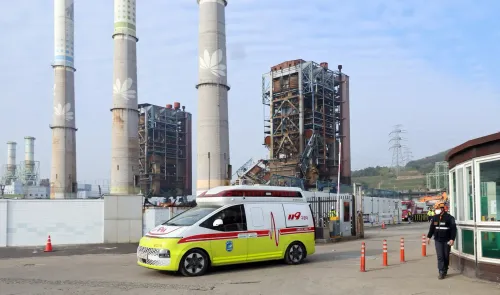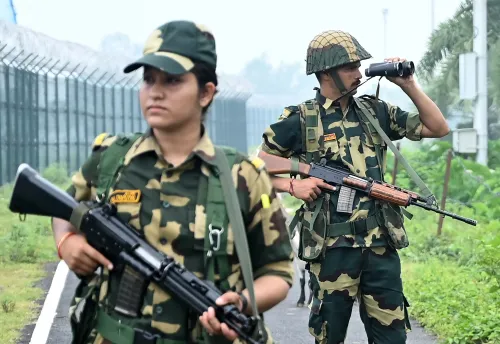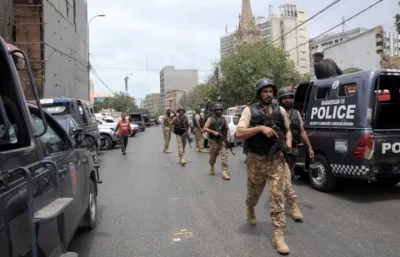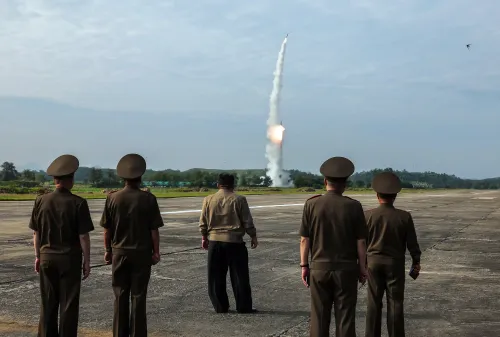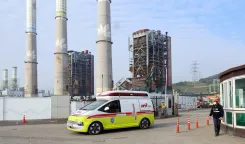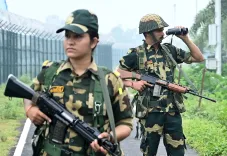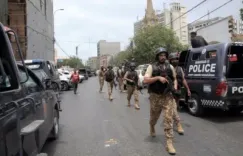Did BLA Militants Disrupt Quetta-Karachi Highway and Set Government Buildings on Fire?
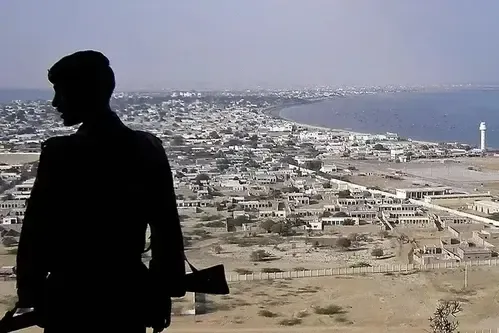
Synopsis
Key Takeaways
- BLA militants attacked Mongochar, causing significant damage.
- Traffic on Quetta-Karachi highway was halted.
- Multiple government buildings were set on fire.
- Militants freed prisoners during another assault.
- Security forces are responding to the escalating violence.
Quetta, May 4 (NationPress) An intense assault carried out by the Fateh Squad of the banned militant group – the Baloch Liberation Army (BLA) in the Mongochar region of Kalat district, has led to extensive damage to various government facilities and the obstruction of the Quetta-Karachi highway.
According to security insiders, the BLA militants effectively blocked the Quetta-Karachi Highway, stopping all traffic and conducting searches on numerous vehicles, including passenger buses.
They mentioned that armed militants invaded the Mongochar marketplace, seizing control of multiple government structures, including the offices of NADRA (National Database & Registration Authority), the Judicial Complex, and the National Bank of Pakistan, which they subsequently set ablaze.
“The fire caused significant damage to these buildings. The militants escaped the scene prior to the arrival of security forces,” sources revealed.
The BLA's Fateh Squad claimed responsibility for the attack, asserting that these operations are part of their so-called “liberation struggle.”
Meanwhile, security personnel indicated that a counter-operation was initiated in the area, with traffic on the National Highway (N-25) being restored.
Following this attack, another significant incident occurred in the same region of Mongochar, where BLA militants intercepted a police vehicle transporting prisoners from Gadani jail to Quetta.
Reports indicated that the BLA militants successfully freed at least 10 prisoners while taking five policemen captive.
Sources explained that the police were using a private vehicle for prisoner transport, and the driver along with the vehicle was released by the militants.
“The militants executed the same tactic to halt and intercept the van by blocking the main highway,” sources elaborated.
This incident was confirmed by police officials, who noted that approximately 10 prisoners were being transferred from Gadani jail to Quetta and the central jail in Mach.
“When the vehicle reached the Mongochar area of Kalat district, militants were obstructing the national highway, inspecting every vehicle, including buses and trucks. Upon encountering a prison van, they liberated the prisoners and abducted five police officers, who were guarding the van, along with their official firearms. The two policemen in civilian attire remained unharmed,” a police official stated.
Senior political analyst Kamran Yousaf commented that the manner in which these militants blocked the highway, searched vehicles, and subsequently targeted government buildings indicated an intent to locate the prisoner transport and liberate their associates.
“Once they failed to find the prisoners in the stalled vehicles on the highway, they proceeded to search government buildings in Mongochar, during which they continued to set the buildings ablaze,” Yousaf said.
He noted that the attack raises serious concerns regarding the security landscape in Balochistan and the obstacles faced by Pakistan’s security forces against covert yet widespread support networks like the BLA.
“These militants are aware of prisoner movements and the presence of security personnel on various modes of transport. They meticulously plan and execute their targeted operations,” Yousaf concluded.

